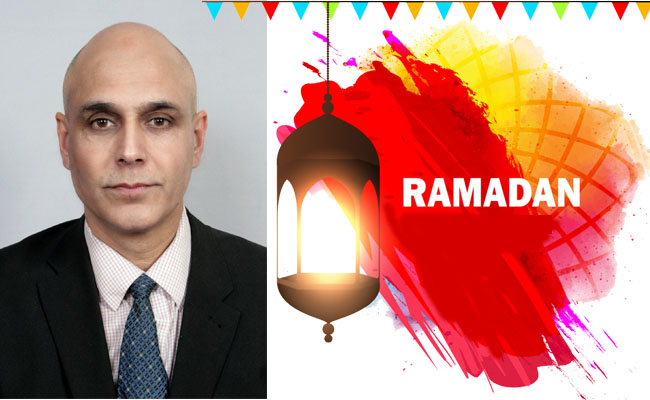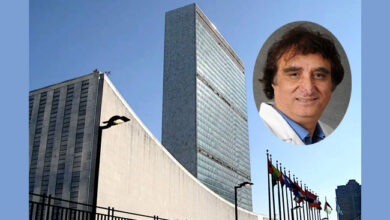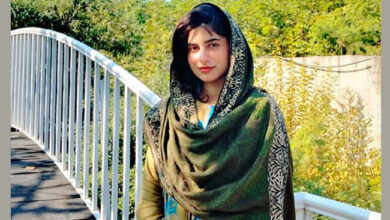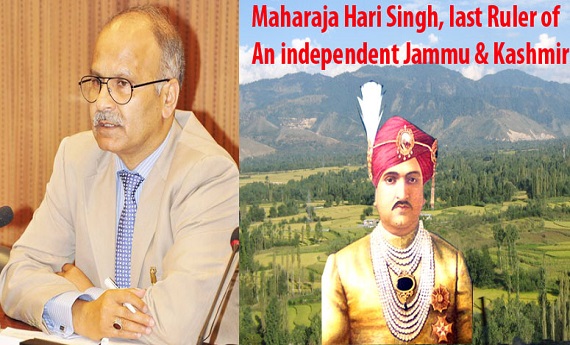Why Can Muslims Not Fully Benefit from the Holy Month of Ramadan?

Written By: Qasim Swati (United Kingdom)
Being one of the Five Pillars of Islam (the ritual obligations of Muslims), Ramadan is the ninth month of the Muslim year during which strict fasting is observed from dawn to sunset. This is a month of reflection (contemplation and religious meditation), community activities, prayers, fasting (Saum), and a time of learning for Muslims to learn and practise self-control, self-discipline, sacrifice, and have the ability to understand and share the feelings of the needy, poor and those who are in troubles in some way. The holy month of Ramadan is an extraordinary opportunity for the Muslims, throughout the world, to improve their physical, mental and spiritual capabilities and start living as role models for others during the rest of their lives.
This is a sacred month in Islam during which the Muslims observe As-Saum (fasting), in which time they are not allowed to take food or drink, or have sexual relations and also avoid all other evil and wicked practices, including smoking (the use of tobacco products), the use of other drugs, and other sinful activities, from the Adhan of the Fajr (early morning) prayers till the sunset.
The observance of ‘Saum’ is so much important for Muslims that Allah the Almighty instructs them about fasting, in the Noble Qur’an, as: “O you who believe! Observing As-Saum (the fasting) is prescribed for you, as it was prescribed for those before you, that you may become Al-Muttaqun (the pious). [Observing Saum (fasts) for a fixed number of days, but if any of you is ill or on a journey, the same number (should be made up) from other days. And as for those who can fast with difficulty, (e.g. an old man), they have (a choice either to fast or) to feed a Miskin (poor person) (for every day). But whoever does good of his own accord, it is better for him. And that you fast is better for you, if only you know. The Month of Ramadan in which was revealed the Qur’an, a guidance for mankind and clear proofs for the guidance and the criterion (between right and wrong). So, whoever of you sights (the crescent on the first night of) the month (of Ramadan, i.e. is present at his home), he must observe Saum (fasts) that month, and whoever is ill or on a journey, the same number [of days which one did not observe Saum (fasts) must be made up] from other days. Allah intends for you ease, and He does not want to make things difficult for you. (He wants that you) must complete the same number (of days), and that you must magnify Allah [i.e. to say Takbir (Allahu Akbar), Allah is the Most Great] for having guided you so that you may be grateful to Him.” [Qur’an, 2:183 – 185].
The two essential components or elements of the process of fasting are suhoor and iftar. Also spelled as (sahur/suhur or sahoor), suhoor is the morning meal eaten by Muslims before the sun has come up during the month of Ramadan. In the same way, iftar is the meal eaten by Muslims after sunset during the month of Ramadan or when they fast on other days outside the holy month of Ramadan, which they use as their evening meal after the sun has gone down in order to break their fasts.
If observed properly and accurately, fasting (Saum) has many benefits and advantages. A report by Sami Rahman on Aljazeera.com, published on 20 April 2020, titled ‘Ramadan 2020: The health benefits of fasting: reads, as “Some experts say restricting food intake during the day can help prevent health problems and improve mental health.” Thus, the report adds that fasting can assist in preventing obesity, heart disease and high cholesterol, while improving mental well-being and health.
The same report also refers to a TV documentary ‘Eat, Fast and Live Longer’, released by Michael Mosley in 2012, and his best-selling book, ‘The Fast Diet’, in which he advocates a form of fasting, called ‘time-restricted eating’, similar to the practice of fasting done by Muslims in the holy month of Ramadan. While shedding light on the merits of ‘time-restricted eating’, Mosley mentions some benefits of fasting, as “The proven benefits include improved sleep and evidence of reduced risk of some cancers, in particular, breast cancer.”
Fasting is also believed to lead to healthy eating habits, healthy lifestyle and spiritual boost and enhancement. It is also good for your metabolism, helpful in detoxifying (remove toxic substances from or become free from harmful substances) your digestive system, significant for weight loss which can help a lot in protecting you from developing many medical conditions (like stroke, heart problems, diabetes, etc.), being a good opportunity for adopting positive ethical habits, while shunning bad and immoral practices and customs in life.
Fasting is the act of abstaining from drinking, eating, sexual relations and smoking or use of all tobacco products (along with keeping away from all evil and wicked acts) from dawn to sunset in order to create the consciousness of God or ‘taqwa’ (piety) in Muslims. As mentioned earlier, this is very beneficial and helpful for those who observe it, but most of the Muslims do not follow the rules appropriately, and, thus, cannot benefit from it thoroughly.
There are certain people among Muslims who are Muslims just in name and who are Muslims only by birth. They have inherited this religion from their parents and forefathers and ancestors as a tradition, but they do not practice most of the teachings of Islam. So, they neither offer the five-time-obligatory prayers nor do they bother about fasting in the month of Ramadan. Instead, they carry on with their routine habits of eating, drinking and smoking and such other things, regardless of whether this is the month of Ramadan or not.
There are some Muslims who observe Saum (fasting) during the month of Ramadan, but they do not properly follow the rules and principles, essential for fasting, and make so many mistakes and commit sins that make their practice of fasting unproductive, meaningless and fruitless.
Some people use different techniques to cope with meeting their religious obligation of fasting. They try to keep themselves awake at night and start going to bed after their suhoor and sleep like a rock all day long. They normally wake up for their Zuhr Prayers or nearly before Asr Prayers that gives them the opportunity to complete their fasting without feeling any thirst and other unpleasant situation.
Some Muslims, especially the young ones, try to kill their time while fasting by entertaining themselves with music, playing various video games/the use of Playstation or PlayStation, etc. These days, the majority of people keep themselves busy by using the different platforms, types and apps of social media, like Face-book, Twitter, Reddit, LinkedIn, Wikipedia, Pinterest, WhatsApp or WhatsApp Messenger (an American freeware, cross-platform messaging and Voice over IP service), Rakuten Viber or Viber (a cross-platfrom Voice over IP and instant messaging software application), Facebook Messenger (an American messaging app and platform, developed by Facebook, Inc.), etc. Some of these platforms and apps can be used for religious purposes, but, in most cases, these things keep (particularly young Muslims) away from fully benefiting from fasting in the month of Ramadan.
Fasting is not only the name of staying thirsty or hungry during the daytime, as you have to do a lot more while fasting as a Muslim. There is a gigantic list of Haqooq-ul-Allah (Duties of Muslims towards Allah the Almighty) and Haqooq-ul-Ibaad (The Rights of other Human Beings or Duties towards Humankind) in Islam which the Almighty God wants the Muslims to respect and fulfil. Both these types of rights are important in Islam, but some scholars give more importance to Haqooq-ul-Ibaad than Haqooq-ul-Allah, as once the Holy Prophet (peace be upon him) asked his Sahabah (Companions): “Do you know who a bankrupt person is?” They said, “The bankrupt among us is the person who does not have any wealth.” The Noble Prophet (peace be upon him) said: “The bankrupt of my Ummah (The Muslims) is someone who comes on the Day of Judgement with many rewards, prayers, fasting, Zakat/Zakah (poor due), etc., but he has accused this person falsely; he has abused another person; cursed a third one; ripped off or cheated someone else; shed the blood of another one; so, he ends up giving each one of them from his rewards (good deeds), and if he runs out of his good deeds or rewards and he is not able to pay them back, then, they start giving him their sins, and he ends up going to (Hell ) Fire.” [Sahih Muslim].
Unfortunately, we, Muslims, do not care about these rights and exploit other human beings in some way by lying to them, cheating or deceiving them, breaking our promises, misbehaving, backbiting, being dishonest, avoiding our responsibilities and duties, abusing and cursing others, disrespecting them and hurting their feelings, injuring and killing them, ignoring the rights of our neighbours, friends, relatives (parents, grandparents, children, grandchildren, brothers, sisters, uncles, aunts, nieces, nephews, in-laws, husbands, wives and all such other relatives), neglecting our responsibilities as employees and employers; and above all, not distinguishing between halal/halaal (lawful) and haraam/haram (unlawful, forbidden and punishable) of our sources of income, etc.
When this comes to getting physical and mental well-being from fasting, we again do not get the maximum benefit from our ‘Saum’, due to our dietary irregularities and deficiency. For instance, Al-Rayan Bank (a commercial bank in the UK) has given some handy healthy eating tips to its customers during the sacred month of Ramadan which can help their bodies to gain energy and rehydrate from what to eat and drink. Such healthy eating habits require them to avoid fatty foods (like sweets, chocolates, biscuits, cakes); refrain from sugary, salty and fried foods; eat more wholemeal meals; eat fluid-rich foods, such as raspberries, oranges, grapefruit, strawberries and watermelon (fruits) and spinach, broccoli, peppers, aubergine, cauliflower, cabbage, tomatoes, celery, radish, courgette, iceberg lettuce and cucumbers in vegetables; drink enough water (at least, 8 – 12 cups a day) while abstaining from sugary drinks and eating slowly in order to digest your food appropriately.
But most of the people do not care about what is good and what is bad for them in their diet when this comes to choice, taste and attraction.
Doctors and other medical professionals often advise their patients to drink enough water (to keep themselves hydrated), eat less (to lose weight and not to become obese) and have a regular exercise (to keep their bodies fit). On the contrary, in the month of Ramadan, the majority of people try to eat more, drink less (or having sugary drinks) and ignore the advice of doing exercise regularly.
Despite all these weaknesses, shortcomings and deficiencies that the majority of the Muslims demonstrate while fasting, there are some people (a minute and tiny group among Muslims) who fulfil all these requirements of observing ‘Saum’ and do their best to get the optimum benefits from fasting by praying properly, respecting and meeting the rights of others, as well as the rights of Allah the Almighty and following all the required rules and principles of fasting both in the holy month of Ramadan and outside this month and worshipping God the Almighty day and night. Such people have been referred to, as Al-Muttaqun (the pious) in the Holy Qur’an, as, Say: “Shall I inform you of things far better than those? For Al-Muttaqun (the pious – See V. 2:2), there are Gardens (Paradise) with their Lord, underneath which rivers flow. Therein is (their) eternal (home) and Azwajun Mutahharatun (purified mates or wives). And Allah will be pleased with them. And Allah is All-Seer of the (His) slaves.” Those who say: “Our Lord! We have indeed believed, so, forgive us our sins and save us from the punishment of the Fire.” (They are) those who are patient, those who are true (in Faith, words, and deeds), and obedient with sincere devotion in worship to Allah. Those who spend [give the Zakat and alms in the Way of Allah] and those who pray and beg Allah’s Pardon in the last hours of the night.” [Qur’an, 3: 15 – 17].
Qasim Swati is a freelance journalist, writer and human rights activist, based in the UK, and can be reached at https://qasimswati.com or mailto:info@qasimswati.com.





